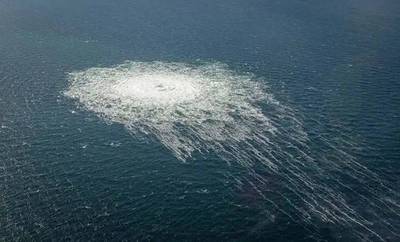Nord Stream Pipeline Blasts Probe Continues, but Culprits Difficult to Determine
It will likely be difficult to determine who blew up the Nord Stream pipelines connecting Russia and Germany in the Baltic Sea last year, Sweden's prosecution authority, which is investigating the incident, said on Thursday.
The Sept. 26 explosions at the pipelines connecting Russia and Germany occurred in the economic zones of Sweden and Denmark. The blast in the Swedish zone happened at a depth of 80 meters and the prosecutor said investigating it was complicated.
"Our hope is to be able to confirm who has committed this crime, but it should be noted that it likely will be difficult given the circumstances," prosecutor Mats Ljungqvist said in a statement. "We are working unconditionally and turning over every stone and leaving nothing to chance," he added.
While no conclusion has been drawn there have been a number of theories as to who blew up the pipelines and how.
Germany has confirmed its investigators raided a ship in January that may have been used to transport the explosives used to blow up the pipelines. German media reported that the boat could have been used by a Ukrainian or pro-Ukrainian group.
"There is a variety of information and reports about the sabotage against the gas pipes. The incident has obviously become an open arena for different influence attempts," Ljungqvist said in the statement.
"These speculations do not have an impact on the ongoing investigation, which is grounded in facts and the information which has emerged from analyses, crime scene investigations and collaboration with authorities in Sweden and other countries."
(Reuters - Reporting by Johan Ahlander, Simon Johnson and Essi Lehto; editing by Niklas Pollard)

















